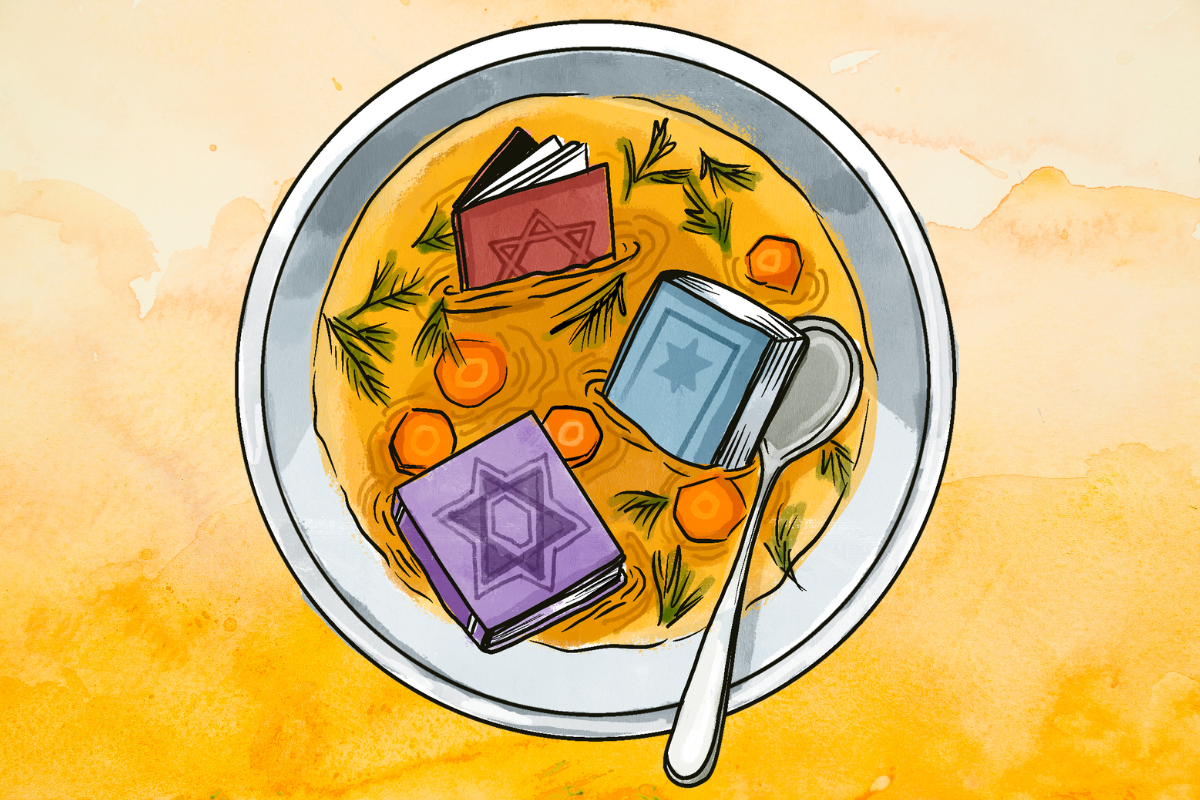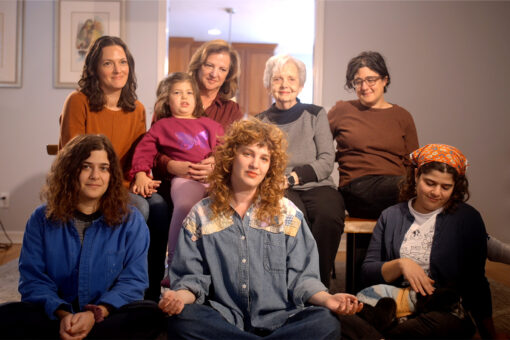The meeting was about to start, and we anxiously watched as the waiting room filled up. We had decided, a few months earlier, to launch a monthly Jewish book club over Zoom, which our Instagram followers helped us name “Matzah Book Soup.” Now it was April 2021, and we were set to discuss our first book: “Zoe Rosenthal is Not Lawful Good” by Nancy Werlin.
The idea for Matzah Book Soup came out of conversations we had been having for some time about the issues facing Jewish readers today. As two Jewish women with active bookstagram accounts (@litbylilli and @its.amandas.bookshelf), we had long been bothered by how many books with Jewish characters rarely showcased Jewish pride and joy, and invariably took place during the Holocaust. In addition, we found ourselves constantly reading Goodreads reviews by people saying they won’t read a book if the author is Jewish, and reviews of very Jewish books which just didn’t mention the characters’ Jewishness at all. Incorrect assumptions about Jews, already rampant on social media, unfortunately surfaced in the book-loving community too.
We wanted to promote books that told Jewish stories and featured characters with varying relationships to Judaism. We wanted to hear how the authors were inspired by their own religious journeys. We wanted a space where people could gather to learn from and read books by Jewish authors and about Jewish characters. As our tagline states, we wanted a Jewish book club that could truly be for all readers, religious or not, Jewish and non-Jewish. And so, we created Matzah Book Soup.
Though we had over 50 people on our Facebook page at the time of our first meeting, we thought we’d be lucky if five showed up to the first Zoom session. We were shocked when around 20 people joined, enthusiastic about the mission of our club. Buoyed by the discussion of Jewish representation, and our hearts full with members telling us how they felt seen by the club and our book choices, we began to plan the May meeting, choosing Dahlia Adler’s “Cool for the Summer.” Adler saw our Instagram posts about the meeting and reached out to ask if we wanted her to speak. Of course, we jumped at the chance, and the discussion that month included, again, around 20-25 people.
After our chat with Adler, we realized that Jewish authors don’t often get to speak to Jewish audiences, and they really value the type of questions we asked. Questions such as “why did you choose to write a Jewish protagonist?” or even “have you ever experienced antisemitism in the process of getting your book published?” allow them to explore and explain new angles to their work. We decided to invite the authors of each of our subsequent picks to the monthly Matzah Book Soup discussions and have been consistently thrilled, as nearly all have agreed.
“Matzah Book Soup has become one of the highlights of a book release for me,” said Rachel Lynn Solomon, who recently joined the group to discuss her latest novel, “See You Yesterday.” “The club members are so passionate and engaged during chats, and they ask fantastic questions. I’ve felt a bit of virtual event fatigue over the past couple years — who hasn’t? — but these meetings never fail to remind me of how meaningful it is to connect with Jewish readers.”
While there are lots of book clubs, we were surprised to find just how meaningful it was to discuss Jewish themes in books we love in the context of a Jewish group. We didn’t realize how deep the need for a Jewish community of readers went, but the reactions from members of Matzah Book Soup have been so gratifying. People write to us about what it means to them to have a safe space to discuss Jewish themes in books and to share this space with other Jewish book lovers.
Sometimes, it can be tricky to decide what counts as a Jewish book, or what makes sense for this group. We try to pick books from a variety of genres, but since we focus on new releases, we can’t cover everything. We struggle to find adult fantasy, thrillers and general fiction with Jewish protagonists, so when we learn of one’s release, we work to get it on the calendar. But the conversations can be wide-ranging: We love learning about the importance of casual Jewish representation from Rachel Lynn Solomon and Marissa Kanter; the value of queer Jewish narratives from Dahlia Adler and Haley Neil; the joy that comes from reading fantasy books based on Jewish folklore and mythology from Rebecca Podos and Ava Reid; and the delight that comes from reading about a Jewish protagonist finding her way through her own love story from Jean Meltzer and Amanda Elliot. We pick our books several months in advance, which gives us enough time to reach out to the author, or publisher, to see if the author wants to join our chat.
In the past year, Matzah Book Soup has grown into a robust group, with both loyal members and people who drop in occasionally. We started with an Instagram chat group, moved to Facebook after it quickly maxed out, and we now have over 150 members in our community. We have developed relationships with authors, publicists, and imprints who work on Jewish stories. We even launched Matzah Book Soup merch. We love watching Matzah Book Soup grow, and we are so gratified to have created a thriving Jewish bookish community.
If you’re interested in joining Matzah Book Soup, you can find the group on the Book Clubs app on the “Join a Book Club” page under “Influencer-led Book Clubs.”



